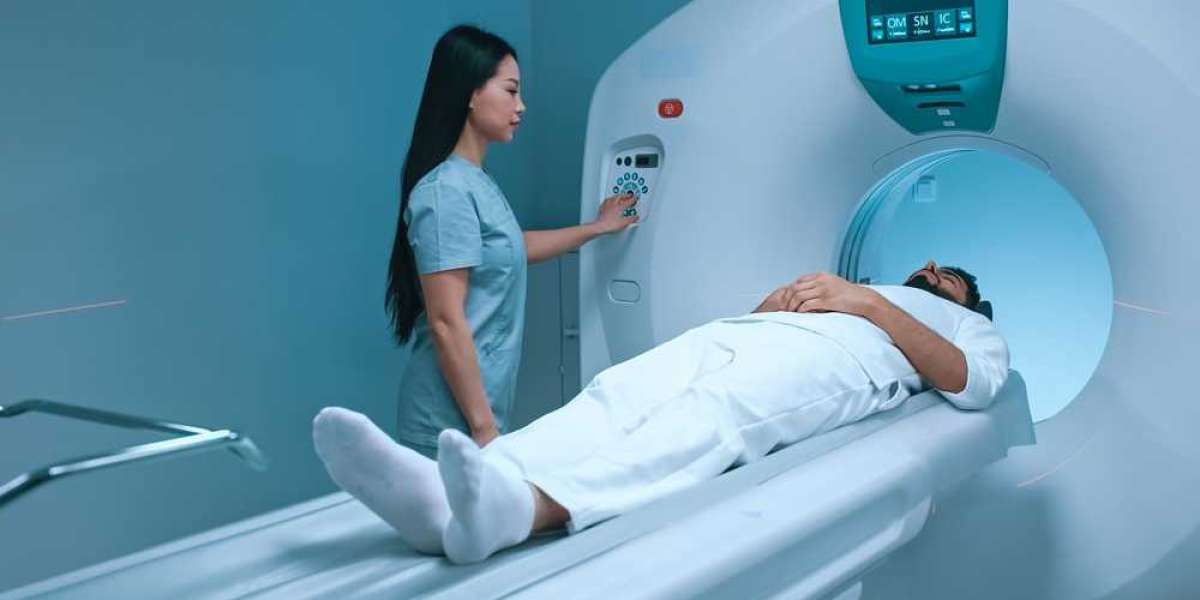Medical imaging plays a crucial role in diagnosing health conditions. When doctors need a closer look inside your body, they often recommend either a CT scan or an MRI.
But how do you know which one is right for you? Well, that depends on several factors, including the type of condition being investigated, the level of detail required, and any health concerns you might have.
In this guide, we’ll explore CT scan vs MRI in detail, breaking down how each test works, their key differences, and when one might be better than the other. By the end, you’ll have a clear understanding of which imaging test best suits your needs.
How Do CT Scans and MRIs Work?
Before comparing the two, let’s first understand how each test functions. Both CT scans and MRIs create detailed images of the inside of your body, but they use different technologies.
CT Scan: Fast and Effective Imaging
A CT (Computed Tomography) scan uses X-rays to take multiple cross-sectional images of the body. These images are combined to create a 3D view of bones, organs, and tissues. Because of its speed, a CT scan is often used in emergencies when quick results are needed.
MRI: Detailed and Radiation-Free
An MRI (Magnetic Resonance Imaging) scan uses powerful magnets and radio waves to generate detailed images. Unlike a CT scan, an MRI does not use radiation. It provides clear images of soft tissues, such as the brain, spinal cord, and muscles.
Key Differences Between CT Scans and MRIs
Both imaging techniques have their strengths, but they serve different purposes. Here’s how they compare:
1. Speed and Convenience
- CT scans are quick, often taking just a few minutes.
- MRIs take longer, sometimes up to an hour, depending on the area being scanned.
2. Image Detail and Clarity
- CT scans are excellent for detecting bone fractures, lung issues, and internal bleeding.
- MRIs provide more detailed images of soft tissues, making them ideal for brain injuries, spinal problems, and joint issues.
3. Radiation Exposure
- CT scans expose you to small amounts of radiation, which may not be suitable for repeated use.
- MRIs do not use radiation, making them safer for pregnant women and those needing frequent imaging.
4. Comfort and Experience
- A CT scan is open and less confining, making it easier for people with claustrophobia.
- An MRI requires lying in a tube-like machine, which some people may find uncomfortable.
When is a CT Scan the Better Choice?
There are situations where a CT scan is preferred over an MRI. Here are some common cases:
- Emergency Situations: CT scans deliver fast results, making them ideal for detecting internal injuries or strokes.
- Bone Fractures and Injuries: The detailed images of bones help doctors quickly diagnose breaks and dislocations.
- Lung and Chest Issues: CT scans can effectively detect pneumonia, lung tumors, and blood clots.
- Detecting Tumors and Cancers: Certain types of cancers, such as those affecting the lungs and abdomen, are better visualized with a CT scan.
When is an MRI the Better Choice?
MRIs shine in areas where soft tissue details are crucial. Here’s when doctors are more likely to recommend an MRI:
- Brain and Nervous System Conditions: MRIs can detect strokes, multiple sclerosis, and brain tumors with high accuracy.
- Joint and Muscle Injuries: Soft tissues, ligaments, and tendons are more visible on MRI scans, making them useful for sports injuries.
- Spinal Cord Disorders: Herniated discs and nerve damage are best diagnosed with an MRI.
- Heart and Blood Vessel Conditions: MRIs can capture detailed images of the heart and blood vessels without using radiation.
Safety Concerns: Which Test is Safer?
While both tests are generally safe, there are a few considerations to keep in mind.
- Radiation Exposure: CT scans use X-rays, which involve a small amount of radiation. While the risk is minimal, frequent exposure should be avoided.
- MRI and Metal Implants: Since MRIs use strong magnets, they are not suitable for people with pacemakers, metal implants, or certain tattoos with metallic ink.
- Contrast Dye Reactions: Some scans require contrast dyes for better imaging. Allergic reactions are rare but possible.
Cost and Availability: Which Test is More Affordable?
Cost can also be a deciding factor when choosing between a CT scan and an MRI.
- CT scans are generally more affordable, ranging from $300 to $3,000 depending on the facility and body part being scanned.
- MRIs tend to be more expensive, costing between $500 and $5,000 due to the advanced technology involved.
- Availability: CT scans are widely available in most hospitals and clinics, whereas MRI machines are less common in smaller medical centers.
Final Verdict: Which Test is Right for You?
So, should you get a CT scan or an MRI? The answer depends on what your doctor needs to see.
- If you need fast results, a CT scan is the way to go.
- If soft tissue details matter more, an MRI is the better choice.
- If radiation exposure is a concern, opt for an MRI.
Ultimately, your doctor will determine the best imaging test based on your symptoms and medical history.
Conclusion: Making the Right Choice for Your Health
Choosing between a CT scan and an MRI can be confusing, but understanding their differences helps make an informed decision. While CT scans are faster and better for bones, MRIs provide more detail for soft tissues and are radiation-free.
If you're unsure which test you need, consult your doctor for expert advice. At Advanced Medical Imaging Services, we provide state-of-the-art imaging solutions to ensure accurate diagnoses and better healthcare outcomes.
Need an imaging test? Book an appointment today and get the right diagnosis with cutting-edge technology.








